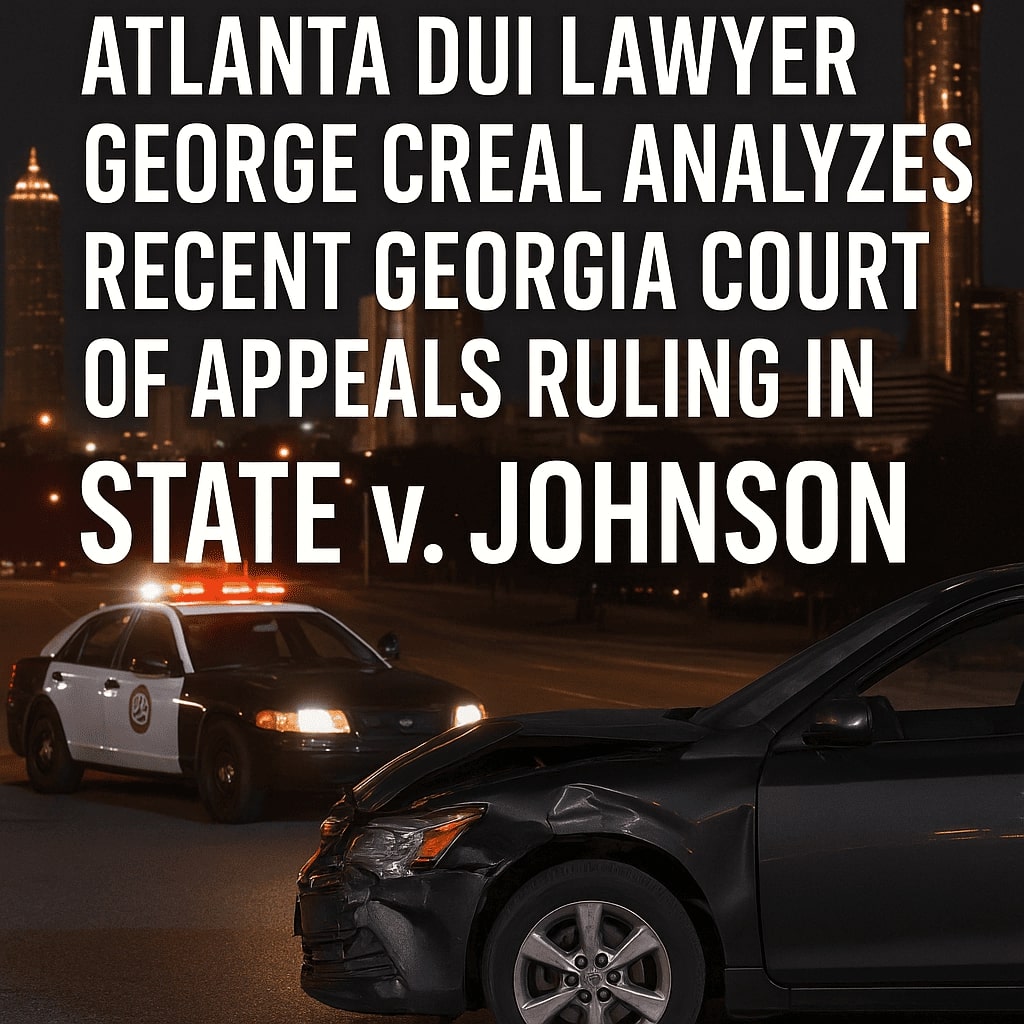As a leading Atlanta DUI attorney, George C. Creal, Jr., stays at the forefront of legal developments to provide clients with cutting-edge defense strategies. A recent Georgia Court of Appeals decision, State v. Johnson (911 S.E.2d 727, Ga. Ct. App. 2025), offers critical insights into the scope of blood test warrants in DUI and vehicular homicide cases. Here, I analyze this significant ruling and its implications for DUI defense in Georgia.
Case Summary
On December 23, 2018, Shetabia Johnson was involved in a fatal accident in Atlanta, where her
Johnson’s defense team moved to suppress the marijuana test results, arguing that the warrant only permitted testing for alcohol, not drugs. Initially, the trial court denied the motion, holding that once blood was lawfully drawn, the State could test for any substance. However, the same day, the Georgia Court of Appeals decided State v. de la Paz (370 Ga. App. 853, 899 S.E.2d 447, 2024), which ruled that a warrant for blood testing must explicitly authorize testing for drugs to be lawful.
Based on de la Paz, the trial court reconsidered and suppressed the marijuana test results. The State appealed, arguing that de la Paz was wrongly decided and that the vehicular homicide charge distinguished Johnson’s case. On January 28, 2025, the Court of Appeals affirmed the suppression, holding that the warrant’s specific language limited testing to alcohol and that de la Paz controlled.
Legal Analysis
The State v. Johnson decision reinforces the Fourth Amendment’s particularity requirement for search warrants. The Court emphasized that a warrant must clearly describe the items to be seized—in this case, evidence of alcohol in Johnson’s blood. The affidavit, application, and warrant focused solely on alcohol, citing Johnson’s odor of alcohol and admission of drinking, with no mention of drugs. Testing for marijuana thus exceeded the warrant’s scope, rendering the results inadmissible.
The Court rejected the State’s attempt to distinguish the case based on the vehicular homicide charge, clarifying that the warrant’s language, not the charges, defines its scope. It also upheld de la Paz, noting that while law enforcement can test for multiple substances under one warrant, the warrant must explicitly authorize such testing. This ruling underscores the need for precision in warrant applications and protects against overbroad searches.
Implications for DUI Defense
This opinion is a game-changer for DUI and vehicular homicide cases in Georgia. It highlights the importance of scrutinizing the language of search warrants and supporting documents. If a warrant only authorizes testing for alcohol, any results for drugs may be suppressed, weakening the prosecution’s case. This is particularly relevant in cases where police suspect impairment but lack specific evidence of drug use before obtaining a warrant.
The decision also signals to law enforcement that warrants must be carefully drafted. As noted in de la Paz, a single warrant can cover multiple substances, but only if the affidavit and warrant explicitly request such testing. This may prompt law enforcement to broaden warrant applications, which defense attorneys must be prepared to challenge for lack of probable cause.
How We Can Help
At the Law Office of George C. Creal, Jr., P.C., we leverage rulings like State v. Johnson to build robust defenses for our clients. Our team meticulously reviews warrants, police reports, and test procedures to identify constitutional violations. With over 25 years of experience, I have the expertise to challenge improper evidence and protect your rights in DUI and vehicular homicide cases.
If you’re facing DUI charges in Atlanta, don’t let flawed evidence jeopardize your future. Contact us today at (404) 333-0706 or visit www.georgecreal.com for a free consultation. Let us put our knowledge of Georgia DUI law to work for you.

